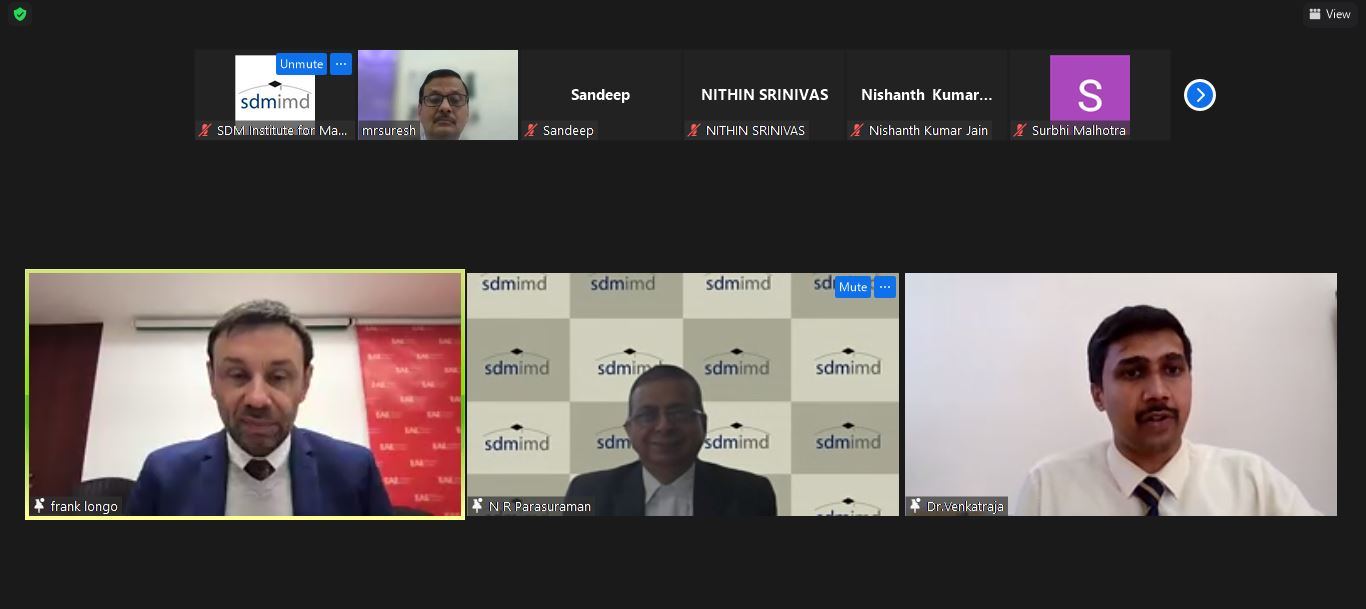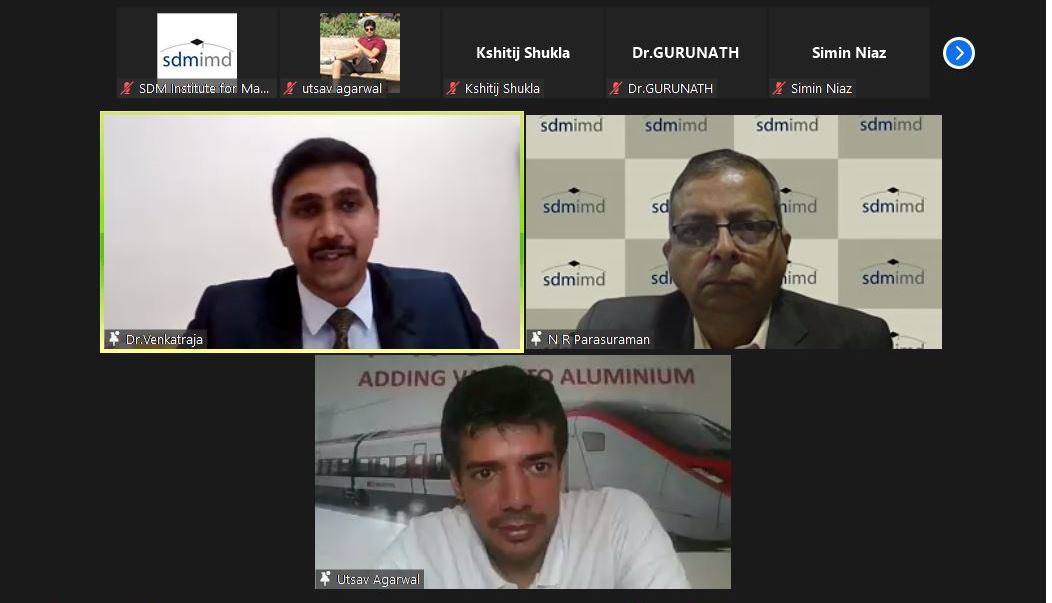6th International Economics Conference
  |
|
Indian economy though is affected by COVID-19 pandemic, responding positively to the quantitative easing and fiscal measures and reviving appreciably, said Prof.N.R.Bhanumurthy, Economist and Vice Chancellor of Dr. B. R. Ambedkar School of Economics University, Bengaluru.
While delivering inaugural address to the 6th International Economics Conference organised by Shri Dharmasthala Manjunatheshwara Institute for Management Development (SDMIMD) Mysuru on the theme of “Economic Growth and Sustainable Development: Emerging Trends” Bhanumurthy further says, “fiscal policy should not be the first line of defence during economic crisis and unlike economic crisis of 2008, India executed more prudent policy measures to manage the COVID-19 triggered economic downturn wherein monetary policy dominance over fiscal measures was evident”.
He expressed concerns that chip shortage would affect automobile manufacturing and supply chain economy. Though inflation is on the rise particularly due to fuel price rise, Bhanumurthy was confident that it will continue to remain within the RBI’s targeted rate of 6 percent. Speaking on the climate change, he said that more research and debates are essential before emerging economies decide whether to continue to use coal as a key energy source.
Answering to a question, Prof.Bhanumurthy said, “regional disparity in India is increasing and it could be attributed to the federal system of government and market forces. Different states have different policies and approaches to the same problem”. Furthermore, he also believed that India is more equipped than before to manage the disparities as new mechanisms are developed.
Dr. Frank Longo is the Associate Dean for Global Programs at EAE Business School in Spain delivered the keynote address to the two-day conference. In his talk, Frank brought out the issues of sustainability, economy and growth and their linkages from the global perspective and discussed the role of academic institutions in this regard.
Dr. Saju Jose is an Associate Professor in Abhu Dhabi University was the Distinguished Speaker for the technical session and he highlighted the role of corporate social responsibility in the development of economically backward segment of the society. He talked about the need for evolving right CSR strategies by corporates by aligning with their core competencies. Jose, further, highlighted that CSR activities should be related to larger concerns for doing good for society and environment, going much beyond the immediate business stakeholders and narrow profit motive.
Utsav Agarwal, Director of Bhorukha Fabcons Private Limited was the chief guest for the valedictory session. In his valedictory address, Utsav said, “conservative banking affects credit flow and thereby economic growth is contracted”. Speaking on the need for economic stability to achieve business sustainability, Utsav narrated the challenges encountered by the MSMEs during COVID-19 pandemic. He argued for consistency and persistence in government policies to enable business sustainability.
Dr.N.R.Parasuraman, Director and Professor of Finance at SDMIMD was present on the occasion and expressed the need for academic community to involve rigorously in relevant research to contribute to better corporate decision making and government policy formulation.
Dr.B.Venkatraja, Associate Professor of Economics at SDMIMD expressed concerns that stagflation, income disparity and climate change might be the obstacles in attaining inclusive and sustained economic development during the COVID pandemic times.
The two-day virtual conference held on November 25 and 26 deliberated on 94 research papers and case studies presented by academic researchers and practitioners on the various dimensions of the economy, growth and sustainability.
Conference Chairperson Dr.B.Venkatraja coordinated the proceedings of two-day event.
|







